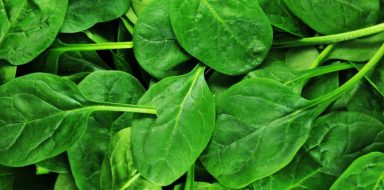Foods to Avoid for Clearer Skin
Did you know that more than 31 million throughout the United States have some form of eczema? Eczema is a chronic skin condition characterized by inflamed, itchy and/or red skin. It can occur anywhere on the body but is commonly found on the hands, face, neck and legs. Certain foods can trigger or exacerbate symptoms of eczema in many people.
Foods to Avoid with Eczema
1. Dairy Products
The dairy in milk, cheese, yogurt and butter have been commonly known to exacerbate eczema. Dairy can cause inflammation in the body, especially for those who are lactose intolerant. This inflammation can worsen eczema flare-ups and lead to more intense itching and redness.
Many people rely on preventative and rescue medication, but that doesn’t mean there isn’t room for alternative methods for asthma.
2. Eggs
Eggs are one of the most common food allergens linked to eczema. For many people with eczema, consuming eggs can lead to increased inflammation, making the skin condition worse.
3. Gluten
Gluten is another common trigger for those dealing with eczema, especially those with gluten sensitivities or celiac disease. Eating gluten can lead to gut inflammation, which is connected to flare-ups of eczema due to the body's immune response.
4. Soy Products
Soy-based foods like tofu, soy milk and soy sauce may trigger eczema in some people, particularly those with soy allergies. Soy contains compounds that can cause an allergic reaction, leading to skin inflammation and worsening eczema symptoms.
5. Processed Sugars
High sugar intake can increase inflammation throughout the body. Processed sugars found in candy, soda, baked goods and other sugary snacks can spike insulin levels, which may lead to an inflammatory response. This inflammation can aggravate eczema, making symptoms more difficult to control.
6. Nuts
Peanuts, tree nuts (such as almonds, walnuts and cashews) and nut products can trigger allergic reactions and exacerbate eczema symptoms in individuals with nut allergies. Even if a person is not allergic to nuts, the high-fat content in nuts can cause an inflammatory response that worsens eczema.
7. Shellfish
Shellfish like shrimp, crab and lobster are common allergens and can trigger eczema symptoms. For individuals with seafood allergies, consuming shellfish may lead to an immune response that worsens inflammation and leads to skin irritation.
8. Citrus Fruits
Citrus fruits such as oranges, lemons, grapefruits and limes are acidic and may aggravate eczema flare-ups. The high acidity of these fruits can irritate sensitive skin, especially when eaten in large quantities, potentially leading to more itching and discomfort.
9. Tomatoes
Tomatoes are another acidic food that can irritate the skin of people with eczema. The acid in tomatoes may cause a reaction in the gut, which can then manifest as skin inflammation. Avoiding tomato-based products like ketchup and pasta sauces may help reduce flare-ups.
10. Spicy Foods
Foods that are high in spice, such as hot peppers, curries and salsas, can increase inflammation and trigger eczema symptoms. Spicy foods can lead to flushing and a heat response in the body, which can exacerbate the itchiness and redness associated with eczema.
Treatment Options
Moisturizers
Moisturizers help restore the skin barrier by locking in moisture and preventing dryness. They should be applied regularly, even when eczema is not flaring, to keep the skin hydrated. They can be found in the form of ointments, creams and lotions specifically formulated for sensitive skin.
Oral Medications
Antihistamines can help reduce itching and are available over-the-counter or by prescription.
Topical Corticosteroids
These are anti-inflammatory medications applied directly to the skin to reduce redness, swelling and itching. They are available in different strengths. Your doctor will prescribe the appropriate one based on the severity of your eczema.
Phototherapy (Light Therapy)
Phototherapy is a treatment that involves exposing the skin to controlled amounts of natural sunlight or artificial ultraviolet (UV) light to reduce inflammation and itching.
Biologic Therapies
Biologics are targeted therapies that affect specific parts of the immune system. They are used for moderate to severe eczema that doesn’t respond to other treatments.
Wet Wrap Therapy
This involves applying a moisturizer or topical medication to the affected areas, followed by wrapping the skin with wet bandages. The wet wraps help the skin absorb the medication and retain moisture.
Behavioral and Lifestyle Changes
Identifying and avoiding specific triggers such as certain fabrics, soaps or foods can help reduce flare-ups. This also includes stress management, since stress can exacerbate eczema. Techniques like meditation, yoga or counseling can be beneficial.







